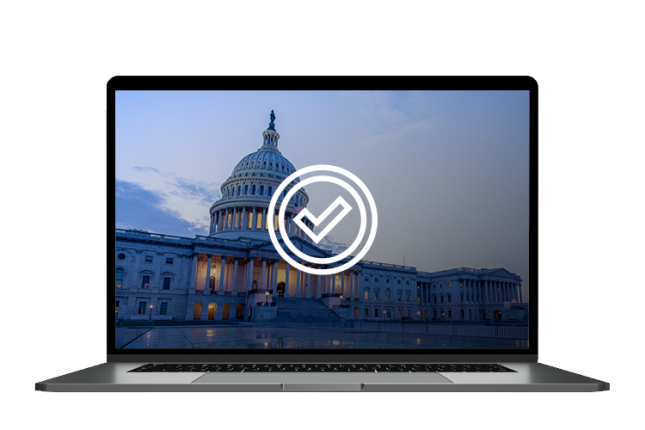Let our team help you navigate the ever-changing benefits compliance landscape each month. Check out this month’s latest alerts, additional updates, and resources – hot off the press:
Employee Benefits Compliance Alerts
DOL Life Insurance Settlement Is a Warning to Plans and Issuers
- A recent settlement requires Prudential to revise certain practices after an investigation found that the company collected life insurance premiums through employer payroll deductions from participants but denied claims for lack of participant evidence of insurance.
- As part of the settlement Prudential must notify plan sponsors of these new corrective actions and requirements moving forward.
- Multiple recent court decisions affirm the importance of revised procedures and warn employers and issuers of potential liability for breach of fiduciary duty.
- It is imperative that all parties understand when evidence of insurability (EOI) is required, to have systems and processes developed to track EOI and audits during open enrollment and throughout the year.
When Is a BAA Required?
- Part of Health Insurance Portability and Accountability Act (HIPAA) compliance includes determining whether vendor partners are business associates of a covered entity, requiring a business associate agreement.
- A business associate agreement passes down the same privacy and security protections that apply to the health plan to the business associate.
- Covered entities should complete a thorough analysis of health plans and the flow of information related to such plans is a necessary first step in determining which plans are subject to HIPAA as sometimes who is a business associate is not obvious.
IRS Releases 2024 HDHP & HSA Limits
- The IRS updates limits for high deductible health plans (HDHPs) and health savings accounts (HSAs) annually for inflation.
- On May 16, 2023, the Internal Revenue Service (IRS) released Revenue Procedure 2023-23, updating cost-sharing requirements for HDHPs and contribution limits for HSAs.
- Revenue Procedure 2023-23 also updated the IRS maximum limit for an excepted benefit health reimbursement arrangement (HRA) in 2024.

Additional Updates & Resources
Reminder! PCORI Fee Due July 31
Employers who sponsored self-funded medical plans that ended sometime during 2022 are required to report and pay the ACA Patient-Centered Outcomes Research Institute (PCORI) fees no later than July 31. Fully insured plan sponsors can rely on their carriers to submit the fee on their behalf, but fully insured plan sponsors that sponsor a self-funded plan component such as a health reimbursement arrangement (HRA) or a flexible spending account (FSA) will need to file and pay for the self-funded component plan.
Payment amounts due in 2022 will differ based on the employer’s plan year. The IRS put together a chart showing applicable fee amounts depending on the plan year end date. The fees due in July 2023 are as follows:
- $2.79 per covered life for plan years ending after September 30, 2021, and before October 1, 2022
- $3.00 per covered life for plan years ending after September 30, 2022, and before October 1, 2023
Self-funded plans may use one of three methods to determine the average covered lives used for reporting and paying the PCORI fee: (i) the actual count method; (ii) the snapshot method; or (iii) the Form 5500 method. There are special counting rules that apply to employers offering multiple self-funded plans or a health reimbursement arrangement (HRA) integrated with a fully insured plan.
Reminder! Form 5500 Due July 31 for Calendar Year Plans
Employee health and welfare plan administrators with at least 100 participants must file an IRS Form 5500 each year by the last day of the seventh month after the end of the plan year, which means plan sponsors with calendar year plans must file annually by July 31.
Plan sponsors may file an extension, which delays the annual filing deadline for calendar year plans to October 15. Get more information about filing Form 5500.
IRS Provides Memorandum on FSA Claim Substantiation
On April 28, 2023, the Internal Revenue Service (IRS) released a memorandum, reminding plan sponsors and participants that expenses submitted for reimbursement under a health flexible spending account (health FSA) or dependent care assistance program (DCAP) must be properly substantiated to be excludable from gross income. The memorandum includes several examples of proper and improper substantiation practices and reminds readers that a plan that practices improper substantiation fails to qualify as a cafeteria plan under Section 125.
Fifth Circuit Grants Stay on Preventive Care Mandate Case
On May 15, 2023, a judge in the Fifth Circuit, a federal appeals court in New Orleans, LA issued an administrative stay of U.S. District Court Judge Reed O’Connor’s ruling in the case Braidwood Management, Inc. v. Becerra earlier this year. We issued an alert on O’Connor’s ruling in May. Judge O’Connor’s ruling struck down part of the Affordable Care Act’s requirement that group health plans and insurers cover preventive services including certain vaccines, screening, and pre-exposure prophylaxis (PrEP) for human immunodeficiency virus (HIV) at no cost-sharing to participants as unconstitutional. In his March opinion, Judge O’Connor ruled that the HIV prophylaxis PrEP violated the federal religious freedom law and that the preventive services were based on an illegally appointed task force, rendering both unconstitutional. The Biden administration immediately appealed the decision and requested a stay. The stay granted on Monday leaves the preventive services mandate in place for now until a further ruling.
Visit our Compliance page and see how our EPIC team can help your business thrive!
